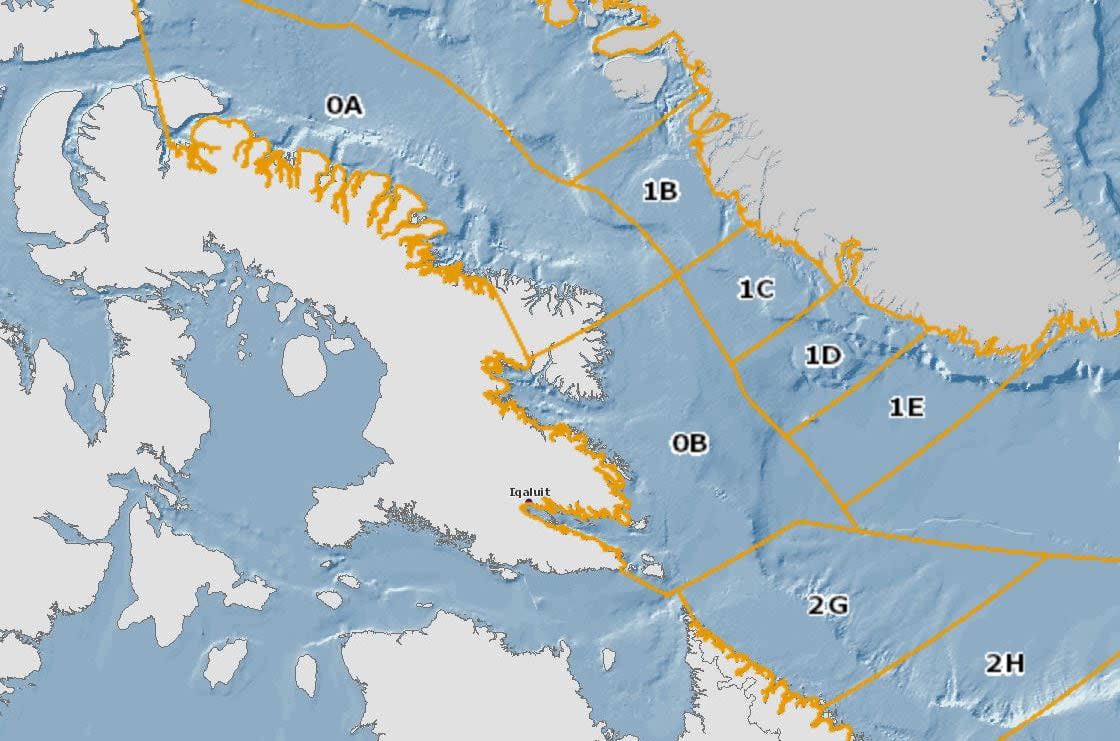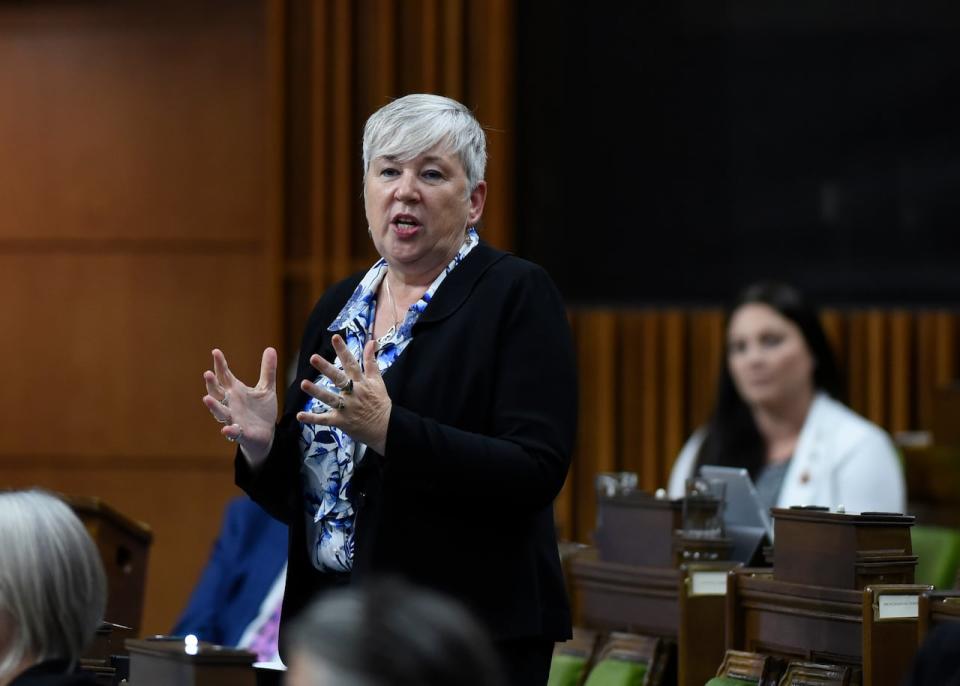Court quashes federal decision to allocate fishing licences in Nunavut to non-Inuit

Canada's federal court has struck down a decision by Ottawa to hand over a sizeable portion of fishing licences off Nunavut's coast to non-Inuit operations, saying that decision was unreasonable.
Nunavut Tunngavik Inc. (NTI) and the Qikiqtani Inuit Association (QIA), who filed the lawsuit, have hailed this as a "significant victory."
In a ruling handed down on April 26, Federal Court Justice Paul Favel said a 2021 decision by then-Fisheries and Oceans minister Bernadette Jordan to reissue fishing licences to a coalition of seven Mi'kmaq First Nations, as part of the sale of Clearwater Foods, was unreasonable.
The sale would have given Nunavut Inuit a window to acquire those fishing licences, which predominantly involve the harvest of Greenland halibut and shrimp. But Jordan transferred the licences to the Mi'kmaq coalition, which bought 50 per cent of Clearwater Foods, a company based in Newfoundland and Nova Scotia.
The two Nunavut Inuit organizations argue the minister failed to consider provisions under Article 15 of the Nunavut Agreement, which states the federal government should give "special consideration" when allocating commercial fishing licences, based on the adjacency and economic dependence of communities. That means local Nunavut communities should benefit from local resources.
According to Favel's ruling, "there is no indication that particular and appropriate attention" was given to that.

Bernadette Jordan, the former fisheries minister, in the House of Commons in September 2020. (Justin Tang/The Canadian Press)
On July 13, 2021, Fisheries and Oceans Canada (DFO) issued a memorandum to Jordan recommending she approve the licence transfer to the Mi'kmaq First Nations coalition.
DFO recognized that Nunavut interests "already hold very significant shares in the two areas for which Clearwater has licences" and it would be "unfair" to strip Clearwater of the licences, to which the minister agreed.
But with respect to Nunavut interests, DFO pointed out that, over time, it had "facilitated increased fishing access to Nunavut Inuit interests in adjacent waters."
Justice Favel said that failed to meet the special considerations of Nunavut.
"Simply measuring the slow increase in allocation to Nunavut interests in [fishing zone] Areas 0A and 0B in and of itself is insufficient," he said.
'Enormous potential in our offshore fisheries'
The two Nunavut Inuit organizations referred to Inuit-Crown reconciliation, fisheries reconciliation, and socio-economic reconciliation, when corresponding with the minister about the transfer of licences, Justice Favel said.
But he said the DFO made little reference to reconciliation with Inuit, "aside from a brief reference that the Mi'kmaq Coalition would view the substitution of a non-voluntary licence relinquishment for a voluntary one as undermining reconciliation, even though Nunavut Inuit might consider it a welcome reconciliatory step."
In a joint statement, NTI and QIA called the decision a clear signal for the Crown to respect Nunavut treaties.
"For decades, these licences have primarily benefited southern-based economies and communities, despite the terms of Nunavut Agreement," they said.
"There is enormous potential in our offshore fisheries," QIA president Olayuk Akesuk said, but its contributions to the Nunavut economy "requires actively addressing historical exclusion of Inuit from nearby commercial fisheries."

Olayuk Akesuk, president of QIA, has hailed the recent court decision as a significant victory. (submitted by Olayuk Akesuk)
Minister followed appropriate procedures
While the minister's 2021 decision was unreasonable, Justice Favel did say the minister met the requirements of the duty of procedural fairness.
Qikiqtaaluk Corporation (QC), the business arm of QIA, was invited by the Mi'kmaq Coalition to join the purchase. Qikiqtaaluk Corporation alleges that it and QIA negotiated with Clearwater several times, but its offers were rejected.
Qikiqtaaluk Corporation argued that the minister failed to share relevant information around the sale, and the chance to respond to allegations that QC and QIA declined to participate.
But Justice Faval said the government did regularly engage with QIA, and on the latter argument, he said QIA is not owed an opportunity to respond to those comments.
"[QIA] are seeking to encompass the right to respond to allegations within the right to be heard," Faval said.
For now, the licences will remain with Clearwater Foods, to give the minister time to consider a response.


